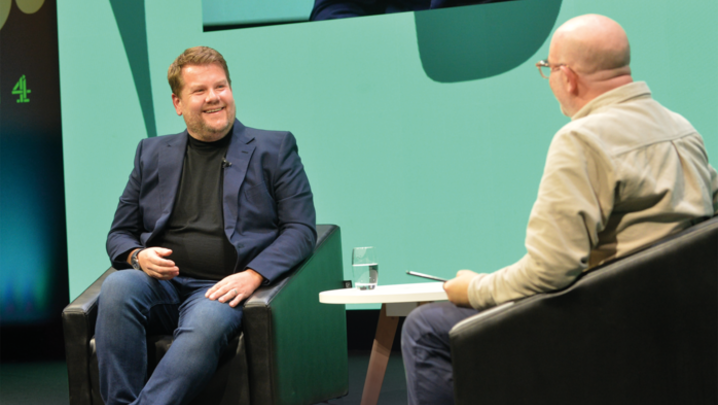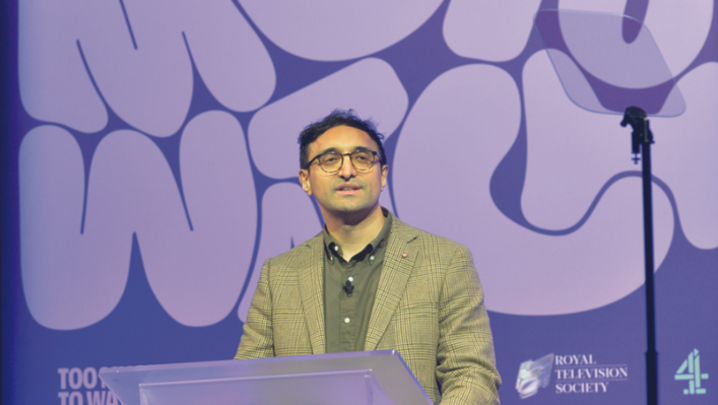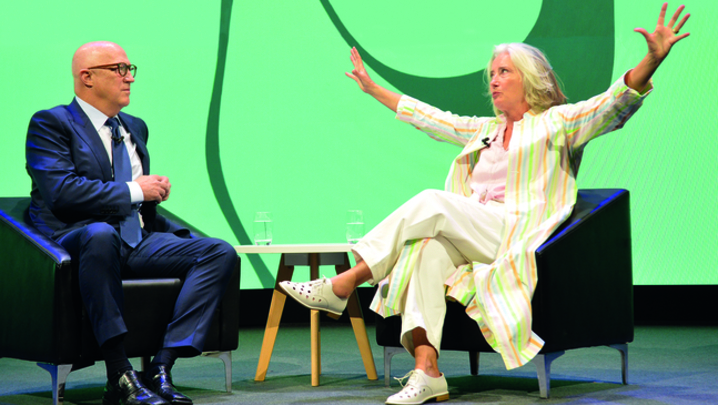Military advisor Paul Biddiss is interviewed by Matthew Bell
From staging the Battle of Waterloo for the ITV adaptation of Vanity Fair to recreating trench warfare for the Oscar-winning 1917, Paul Biddiss ensures that battle scenes in TV and film are as authentic as possible.
What does the job involve?
My job is to support the director and make films realistic from a military perspective. On Sam Mendes’ First World War movie 1917, I was running up and down the trenches with 500 men, checking they were holding their weapons and equipment the right way.
When do you start work on a show?
Ideally, I’m brought on to a production as early as possible. On the Sky One action series Strike Back, I was actually in the writers room, helping to make the stories authentic.
When I have the script, I advise the costumes and props departments on military uniforms and equipment. Then, I train the cast and supporting artists in how, for example, to use weapons realistically and safely.
How did you become a military advisor?
It wasn’t planned. I served 24 years as a paratrooper in the British Army, stationed around the world. After leaving the army, I worked as a private investigator and a bodyguard.
I had a lean period before answering an ad for a job as an extra on the 2014 Second World War movie The Monuments Men. The military advisor was with the main film unit, so I made a suggestion for a scene. I didn’t know that extras on set were meant to be seen, not heard. The director, George Clooney, liked my idea.
Word got around and I got called in to run the extras’ boot camps for Fury, starring Brad Pitt as a Second World War tank commander. It all took off from there.
What was your first TV work?
BBC One’s 2016 adaptation of War & Peace was my first big TV project as a military advisor. I wanted to show guys knocking seven bells out of each other, because that’s what the battlefield was like back then when you got to close quarters.
There were 500 Lithuanian extras. I had three days’ notice to study Napoleonic warfare. Then, I had to carry out a risk assessment, put a boot camp together and train them for the shoot.
Do you have to have been in the army to work as an advisor?
Yes – you have to have experienced military life. You have to be able to articulate to an actor the thoughts and feelings of a soldier as he potentially faces his death. It’s about much more than knowing how a rifle works.
Can real soldiers play TV armies?
It’s not always a good idea – sometimes, you need a blank canvas. Trained, modern-day soldiers would march perfectly in step but during, say, the Battle of Waterloo, many soldiers were not that polished, so it wouldn’t be realistic.
Can you advise on all types of warfare?
All through history and beyond – I do sci-fi, too. For a new series, I’ve developed a system incorporating Roman, Napoleonic and modern-day drills.
What do you bring to work with you?
My experience. I drill actors until it’s natural, so they can concentrate on their acting.
Do military advisors always get it right?
You never get everything 100% correct – the Russian soldiers’ green tunics in War & Peace were not always right as the shade changed three times between the periods depicted.
But a production isn’t going to pay for 500 uniforms three times over just to appease the purists.
On 1917, Sam Mendes said he was making the film for an audience of millions, not to satisfy a few nitpickers. Military advisors are helping to make an entertainment, not a documentary.]
What work are you most proud of?
I’m hugely proud of 1917. It was a hard job due to the nature of the shoot, which used a series of long takes – if one of the extras had screwed up during a nine-minute take and we had to do it again, everyone would have been looking at me.
What are the best and worst parts of the job?
The best is when I see the people I’ve trained on screen, getting everything on point and doing it effortlessly. I use a three-bar system of excellence to encourage the actors: “good”; “the dog’s bollocks”; and “airborne”, the highest.
The worst is when a production brings you on board to train a cast, but hasn’t got the money to keep you on set. It’s so frustrating when they get the details wrong during filming because there’s no military advisor on hand.
Sometimes, productions don’t understand the value an advisor brings – we can save them money by helping them to avoid reshoots.
Are there any tricks of the trade you can share with us?
Keep yourself fit – if you’re training an actor and you want them to take you seriously, you have to be able to do exactly the same things that you’re asking them to do.
What TV series or film would you love to work on?
I’d love to do a series set in Roman times – that’s an interesting period. And Star Wars – the storm troopers need sorting out!
Is it a great life as a military advisor?
My ex-army mates think I’m a lucky bugger to get myself into film and TV. It’s even worse when I tell them it all kicked off after a chance encounter with George Clooney.
Military advisor Paul Biddiss was interviewed by Matthew Bell.







